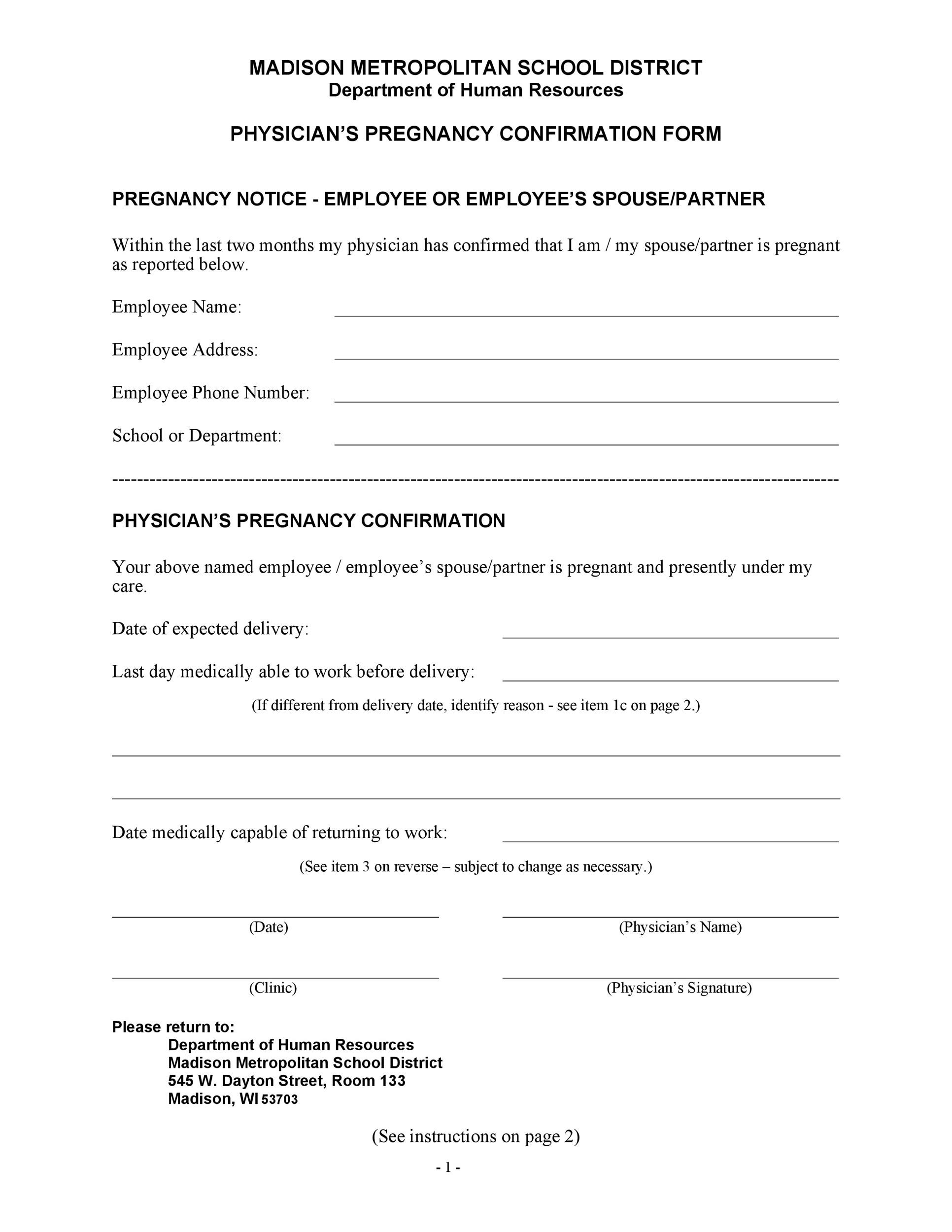
Pregnancy Confirmation: A Comprehensive Guide
Pregnancy is a transformative journey that brings immense joy and anticipation. Confirming a pregnancy is a crucial step that sets the stage for prenatal care and the well-being of both the mother and the developing baby. This article provides a comprehensive guide to pregnancy confirmation, including its methods, timing, and implications.
Methods of Pregnancy Confirmation
1. Home Pregnancy Tests (HPTs)
HPTs are over-the-counter tests that detect the presence of human chorionic gonadotropin (hCG) in urine. hCG is a hormone produced by the placenta after implantation of a fertilized egg. HPTs are widely available, affordable, and easy to use. They can be performed at home, providing immediate results. However, HPTs may not be accurate in early pregnancy or if the urine is diluted.
2. Blood Tests
Blood tests measure the levels of hCG in the blood. They are more sensitive than HPTs and can detect pregnancy earlier, as early as 10-12 days after ovulation. Blood tests are also more accurate than HPTs and can be used to monitor hCG levels over time to assess the health of the pregnancy.
3. Ultrasound
Ultrasound uses sound waves to create images of the uterus and its contents. It can confirm pregnancy by visualizing the gestational sac, yolk sac, and fetal heartbeat. Ultrasound can also provide information about the location of the pregnancy, the gestational age, and the number of fetuses.
Timing of Pregnancy Confirmation
The timing of pregnancy confirmation depends on the method used.
HPTs: Most HPTs can detect pregnancy as early as 10-14 days after ovulation. However, for more accurate results, it is recommended to wait until the first day of a missed period.
Blood Tests: Blood tests can detect pregnancy as early as 10-12 days after ovulation.
Ultrasound: Ultrasound can confirm pregnancy as early as 5-6 weeks after the last menstrual period (LMP).
Implications of Pregnancy Confirmation
Confirming a pregnancy has significant implications for the mother and the developing baby.
1. Prenatal Care
Prenatal care is essential for monitoring the health of the mother and the baby throughout pregnancy. It includes regular checkups, screenings, and lifestyle modifications to optimize the outcome.
2. Lifestyle Changes
Pregnancy requires certain lifestyle changes to promote the well-being of the mother and the baby. These changes may include:
- Quitting smoking and alcohol consumption
- Maintaining a healthy diet
- Exercising regularly
- Getting enough sleep
- Managing stress
3. Medical Management
In some cases, pregnancy confirmation may lead to medical management, such as:
- Prescribing prenatal vitamins and supplements
- Monitoring for potential complications
- Managing underlying health conditions
4. Emotional Support
Confirming a pregnancy can evoke a range of emotions, including joy, anxiety, and uncertainty. It is important to seek emotional support from family, friends, or a healthcare professional.
5. Legal Considerations
Pregnancy confirmation may have legal implications, such as:
- Establishing paternity
- Making decisions about prenatal care
- Accessing maternity leave and benefits
Conclusion
Pregnancy confirmation is a crucial step that marks the beginning of a transformative journey. By understanding the methods, timing, and implications of pregnancy confirmation, individuals can make informed decisions about their prenatal care and the well-being of their future child. It is essential to seek professional guidance and support throughout this process to ensure a healthy and fulfilling pregnancy.